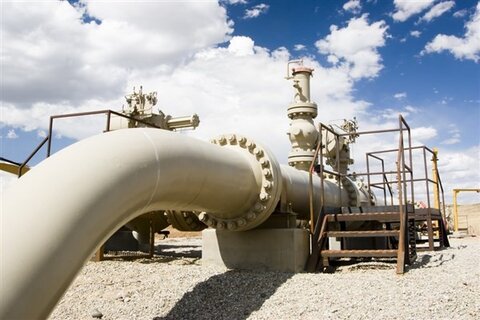Given that new geopolitical developments are underway and plans of Cyprus and the Israeli regime to build another pipeline to transfer Israeli gas to Cyprus and from there to Europe after conversion to LNG are under survey. Nevertheless, the consortium insists on the strategic importance of the big EastMed project.
EastMed is designed to transfer 20 billion cubic meters of natural gas per year, transmitting Eastern Mediterranean resources (Israel regime, Cyprus, and possibly Egypt) to Greece and Italy and from Italy to other European countries. The project is currently being designed and will transfer natural gas from offshore gas reserves in the Levant basin to Greece and continuously with the Poseidon pipelines to Italy and other European regions. The pipeline length will be about 1900 km, and the depth will be 3 km. The agreement was signed in Athens on January 2, 2020, by the leaders of Greece, Cyprus, and the Israeli regime. As a result, on July 19, 2020, Israel officially ratified the agreement, allowing the signatory countries to move forward with plans to complete the pipeline by 2025.
In the annual report of the Depa Company, it is emphasized that the EastMed pipeline project is currently the most considered project to transfer the natural gas resources of the Eastern Mediterranean to the European natural gas network. With the support of the governments of Cyprus, Greece, and Italy, the EastMed project was included in the European Projects of Common Interest (PCI) list in 2015 and then joined the TYNDP development plan of the European Network of Transmission System Operators for Gas. This project can benefit from relevant financial tools. Preliminary engineering studies and the preparation of the engineering package for the EastMed project are currently in progress. They are expected to be completed by the end of the current year. Posidon Consortium will make utmost efforts to complete the engineering studies by the end of 2023 to implement the necessary preconditions to make the final investment decision.
The defenders of the EastMed project, including Greece, believe that this project is strategically important for the European Union and is within the Union’s strategy of diversifying energy sources and routes. The EastMed pipeline is included in the European Commission’s list of projects of common interest (PCI) as the “key cross-border infrastructure projects” connecting the energy systems of EU countries. Utilizing the capacity of Eastern Mediterranean gas resources is one of Europe’s choices to replace Russian gas. This plan can be a sustainable alternative in the fastest possible time to reduce Europe’s dependence on Russian gas and improve Europe’s energy security.
One of the most significant criticisms of the project is its technical complexity (more than 3,000 meters deep) and the lengthy construction period. Therefore, this project will not help reduce dependence on Moscow in the short term. In addition, the existing assessments of the decrease in the demand for natural gas in the coming years in Europe are another deterrent factor for implementing such a large investment. The project’s environmental consequences are also another point of opposition to the EastMed plan.
Ms. “Victoria Nuland,” the US Undersecretary of State, in her interview with the Greek conservative newspaper “Kathimerini” last year, emphasized the US opposition to the construction of the EastMed gas pipeline and officially announced that the US supported the option of LNG transfer instead of construction of the pipeline and asked Greece, Egypt, Cyprus, Turkey, and Israel to cooperate in this regard.
According to her: We don’t need to wait for ten years and spend billions of dollars on this stuff. We need to move the gas now. And we need to use gas today to transition to a greener future. Ten years from now, we don’t want a pipeline. Ten years from now, we want to be green. So we’ve got to use LNG, and we’ve got to use electricity connections that we can do more quickly…Europe needs alternative sources, but the EastMed Pipeline to transfer Eastern Mediterranean gas through Israel, Cyprus, and Greece is not economically sustainable. Building a very large pipe in deep water that will take ten years is costly, not financially viable, and will take a long time.
The Eastern Mediterranean is a politically fragmented region, thus limiting the region’s capacity as a gas hub. There are still differences between Turkey and Cyprus. Due to maritime border disputes, Turkey has disrupted the exploration activities of international oil companies in the Cyprus Exclusive Economic Zone (EEZ).
Considering its gas exploration activities in the Eastern Mediterranean and the competition it has with Mediterranean countries for the exploitation of the energy resources of that region, Cyprus is trying to draw the attention of significant powers to those energy resources by using the energy crisis in Europe.
In December 2019, in line with further complicating the situation, Turkey and Libya reached a maritime agreement establishing an EEZ from Turkey’s southern Mediterranean coast to Libya’s northeastern coast. Greece and Cyprus strongly condemned the deal. In parallel, Israel and Egypt have expressed their serious concerns about the consequences of that project for stability in the region.
Turkey is one of the strong opponents of the plan and claims that this country has been deliberately left out of the project. Apart from the fact that Turkey has influence in Northern Cyprus and has disagreements about the maritime borders with Cyprus, it believes that the economic benefits of the project should not be left out and has repeatedly said that the transfer of natural gas from the Eastern Mediterranean to Europe is only possible through Turkey’s territory. It is not possible without Turkey’s participation. Greece calls the project a “protective shield against Turkish provocations.”
Numerous challenges remain associated with the Eastern Mediterranean (EastMed) natural gas transmission pipeline, and from the outset, the list of challenges was long, and the number of government players with conflicting interests increased.










0 Comments